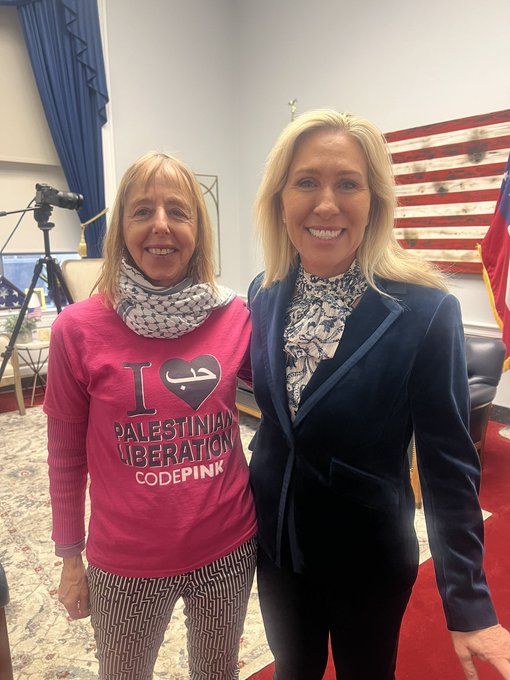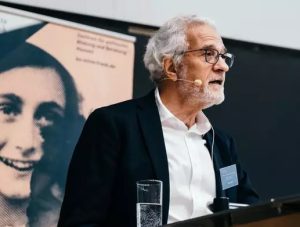In May of last year, Omer Bartov wrote an article for The Nation attempting to provide his fellow leftist antizionists with some guidance on how to respond to accusations of antisemitism: Antisemitism, Then and Now: A Guide for the Perplexed: A short history of the origins, uses, and abuses of a long hatred.
From the outset Bartov makes it clear that in his opinion all such accusations of antisemitism “levied against the growing ranks of Israel’s multiple critics” constitute nothing but a bogus “diversion strategy”. Why? Well, for one thing, these accusations, according to Bartov, are all “made in Israel and then exported to Europe and the United States.”
It must be noted that since nearly half of all the Jews in the world (~46%) live in Israel, there really is nothing remarkable about the claim (which might very well be true) that many accusations of antisemitism are “made in Israel”. The only way that this could possibly be viewed as somehow suspect would be if one just assumes that anything “made in Israel” is automatically tainted. Such an assumption seems rather telling.
But aside from their supposedly unclean origins in the Jewish state of Israel, what other faults can Bartov find in the accusations of antisemitism made against him and other leftist antizionists? Bartov gets right to the point and takes aim directly at the “definition of antisemitism by the International Holocaust Remembrance Alliance [IHRA]”, which Bartov asserts, “has served handily for this diversion strategy.”
So what is it about the IHRA definition of antisemitism that Bartov objects to (other than the fact that he is a walking talking embodiment of most of that definition)? Well, Bartov claims that “Scholars of antisemitism, the Holocaust, and Jewish history have repeatedly pointed out the problematic nature of the IHRA definition.” But who are these “scholars”? Where are their “scholarly” criticisms of the IHRA published? We are not told.
(As an aside, and not to put too fine a point on it, neither the IHRA, nor the working definition of antisemitism that is associated with it, were “made in Israel”. The IHRA is an intergovernmental organization founded in 1998 by former Swedish Prime Minister Göran Persson. Thirty-six countries are full members of the IHRA, and Israel is one of them. Any UN member nation can apply to join the IHRA. However, countries with “authoritarian, dictatorial, or totalitarian regimes” are exluded from full membership. It is also a requirement that member nations designate (on whatever date they choose) a national Holocaust Remembrance Day. More details can be found at the IHRA website here.)
Bartov really gets to the point when he explicitly challenges four of the specific examples of antisemtism found in the IHRA working definition: (1) “denying Jews the right to self-determination”, (2) “applying standards to Israel not demanded of other nations”, (3) “accusing Israel of exaggerating the Holocaust”, and (4) “comparing Israeli policies to those of the Nazis”.
Bartov acknowledges that some people might find the four things listed above to be “objectionable”. (Does Bartov find them objectionable? For some reason he doesn’t tell us.) But, “However objectionable such statements may be, they are not in and of themselves antisemitic.”
Anyone who has actually read the IHRA “Working definition of antisemitism” (IHRAWD hereafter), knows that the list of examples that it provides are introduced by these words:
Contemporary examples of antisemitism in public life, the media, schools, the workplace, and in the religious sphere could, taking into account the overall context, include, but are not limited to:
In other words, the IHRAWD never claims that these examples are “in and of themselves antisemitic”. In fact, stating that these examples “could, taking into account the overall context” constitute evidence of antisemitism is just another way of saying that the examples “are not in and of themselves antisemitic.”
The need to consider context is by no means strictly limited to antisemitism that is manifested in the form of hatred for Israel. For example, is every depiction of a Jewish person with a large nose automatically “in and of itself” antisemitic? This question recently came up with respect to Bradley Cooper’s portrayal of Leonard Bernstein in the film “Maestro”. Well, to use the precise wording found in the IHRAWD, a portrayal of a Jewish person with a large nose “could, taking into account the overall context” be antisemitic. But then again it might not be. Duh.
And what goes for noses also goes for (1) “denying Jews the right to self-determination”, (2) “applying standards to Israel not demanded of other nations”, (3) “accusing Israel of exaggerating the Holocaust”, and (4) “comparing Israeli policies to those of the Nazis”. Given the context, each of these four things could certainly be viewed as antisemitic.
What kind of context might that be? Well, lets see, suppose there is a person who denies that Jews have a right to self-determinatoin, and suppose, for “context”, the same person supports the right to self-determination for Palestinians, the Irish, and pretty much everyone else on the planet who claims that right. But why stop there? Let’s add some more context: like the person is also carrying a picture of Benjamin Netanyahu with a little Hitler mustache. And the person is marching in a demonstration alongside people chanting “From the River to the Sea!”, and many of the people in the demonstration are wearing green headbands to denote their support for Hamas, while others are wearing yellow headbands to signal their support for Hezbollah, while still others are wearing red headbands to show their allegiance to the Popular Front for the Liberation of Palestine.
The above example is not some sort of dark fantasy. If only it were! Alas, it is a description of a typical “pro-palestinian” demonstration in the United States of America.
It’s worth taking a moment to acknowledge that of the four things that Bartov focusses on, one of them is not like the others: “accusing Israel of exaggerating the Holocaust”. Any claim that the Holocaust is being “exaggerated”, at least in my opinion, doesn’t really require much “context”. It’s important to emphasize that we are not talking about the “misuse of Holocaust memory”, which is very different subject (and one that Bartov has written on separately, so he should know the difference).
Personally, I think it is perfectly fair to say that anyone who claims that the Holocaust has been “exaggerated” (whether by Israel or by anyone or anything else) is presumptively antisemitic.
Bartov is quite upset at the growing influence of the IHRAWD. The US State Department officially embraces the IHRAWD:
As a member of IHRA, the United States now uses this working definition and has encouraged other governments and international organizations to use it as well.
(https://www.state.gov/defining-antisemitism/)
The most important thing to be learned from Bartov is just how much leftist antisemites fear and loathe being called out for what they are.



